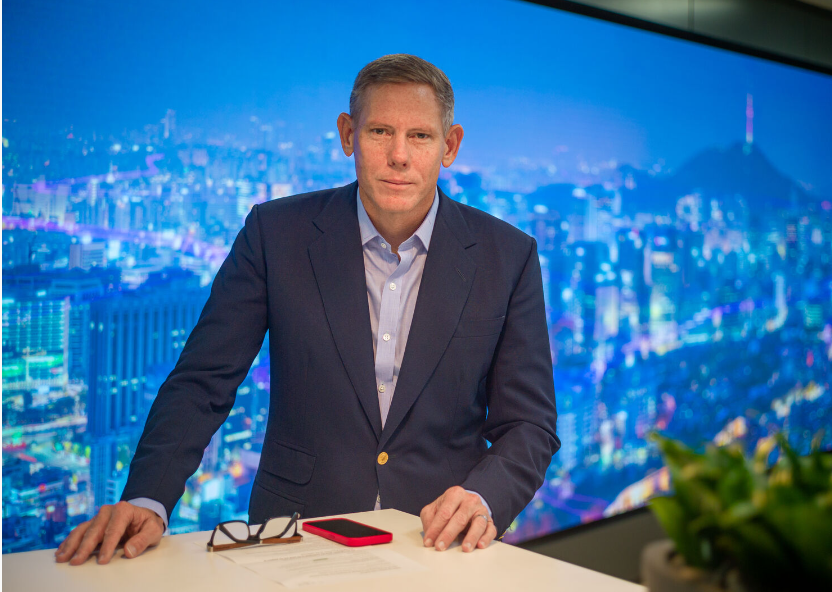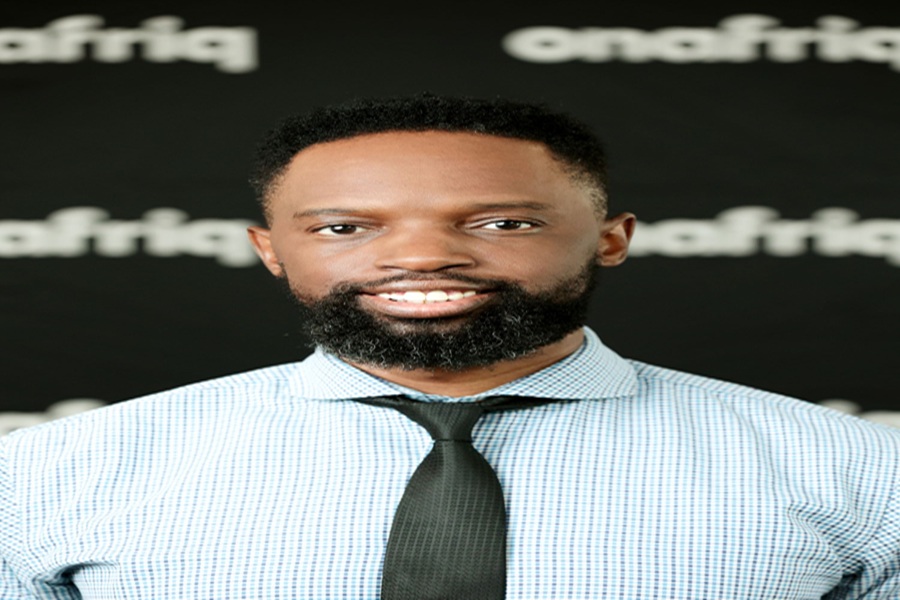Telecom
AVEVA Unveils Key learnings from AVEVA 2023 Sustainability Progress Report

AVEVA, a global leader in industrial software, launches AVEVA’s 2023 Sustainability Progress Report and the first edition of the AVEVA Industrial Intelligence Index at London Tech Week 2024 where the company advocates for an ethical and impact-driven AI aimed at increasing creativity and efficiency for a more sustainable world.

AVEVA 2023 Sustainability Progress Report: key learnings
In 2023, AVEVA continued to make progress on its core ESG framework objectives, including enabling the sustainable transformation of industry through its software, modelling environmental stewardship and ethical best practice, and fostering an inclusive workplace culture where every employee feels engaged and empowered to learn and grow.
This fourth edition of the report is AVEVA’s first publication of ESG data and workstream advancements aligned to a calendar year reporting period. It details progress made in 2023 to AVEVA’s three key pillars: Technology handprint, Operational footprint, and Inclusive culture.
Technology handprint
“Beyond our efforts to reduce our own carbon footprint, we recognize that our biggest opportunity to make a positive impact and accelerate our journey towards NetZero is through our core products, digital solutions that can help industries improve efficiency, circularity, traceability and resilience” declared Lisa Wee, Global Head of Sustainability, AVEVA.
With this regard, the company has developed a green new logo program that has supported in the first six months the deployment of clean tech activities for 25 customers.
In addition, with 13 new case studies quantifying the reduction of emissions AVEVA software enables for customers, the company demonstrates how it walks the talk through tangible achievements contributing to sustainability. Last but not least, hackathons run in 2023 generated 80 sustainability-led technology ideas for future innovations.
2023 also saw the launch of AVEVA’s Sustainability Accelerator program the purpose of which is to advance sustainability use cases and capabilities across the company’s portfolio and partner ecosystem, including via AVEVA’s industrial intelligence platform, CONNECT.
“AVEVA’s Sustainability Accelerator program aims to enable faster uptake of existing sustainability solutions across the industrial landscape, while we continue to invest in product capabilities and partnerships that will push out the frontiers of sustainability innovation for industry” said Joana Mainguy, Director of Sustainability in charge of the program.
Finally, AVEVA has pioneered a new standard for green software: since the end of 2023, 31% of its portfolio has built-in power consumption measurement technology.
Operational footprint
In 2023, AVEVA met 4 out of the 15 2025 ESG targets including 93% reduction in scope 1 and scope 2 emissions through a combination of measures: the company procured 100% of renewable electricity in all global markets as per RE100 criteria, reduced its overall fleet of 21% over the year, and counted hybrid or electric vehicles for 25% of the remaining fleet.
Notable achievements related to upstream emissions include a 36% decrease in purchased goods and services and a 49% decrease in business travel emissions.
The latter goes beyond our 2025 ESG goal of a 20% reduction.
Regarding the scope 3, AVEVA has integrated e-waste data in the inventory under the waste category to report another significant achievement: “Our initial target of diverting 5 tons of e-waste from landfill in 2025 was surpassed by 22.75 tons in 2023. 100% of e-waste sent to our disposal partner is now diverted from landfill,” explained Lisa Wee.
Inclusive culture
AVEVA’s commitment to developing a workplace environment where all employees feel included and are treated with dignity and respect is also highlighted in the report.
“Globally, with 39.9% of new hires, 29% of managers and 26,5% of leaders being women, AVEVA has significantly increased gender representation in 2023 and will continue in this direction to raise these numbers to 50% of new hires, 40% of managers and 30% of leaders by 2030. Besides, we have reached our goal of less than 1% pay equity, and it currently stands at 0.5%”,commented Lisa Wee with enthusiasm. In addition, AVEVA demonstrated its commitment to society donating £ 310,000 to causes supported by AVEVA employees’ communities around the world.
AVEVA also achieved key milestones in regions: In the US, the company has developed a partnership with two Historically Black Colleges and Universities (HBCUs) for an ‘AVEVA Scholars Program. Spanning three years, the program includes scholarships and immersive onsite experiences, ultimately paving the way for talented Black scholars in Engineering and Computer Science to join the AVEVA team upon graduation. The pilot will kick-off mid-June 2024 and count 12 students.
AVEVA Industrial Intelligence Index Report: A 2-in-1 publication to report on industrial needs and to give guidance on existing solutions through inspiring examples of successful and sustainable digital transformation:
At London Tech Week 2024, AVEVA launched its first annual AVEVA Industrial Intelligence Index:
“AVEVA has been supporting the industrial world for more than half a century. Listening to our customers’ needs and understanding their challenges is how we innovate and develop tailored solutions that will help them cope with current and future challenges. With more than 25 000 customers across all industries, we have built a unique expertise. Today I’m delighted to introduce our first AVEVA Industrial Intelligence Index Report. Our ambition is to issue this report every year to help C-suite executives, business unit leaders, and strategic decision-makers leverage industrial intelligence and succeed in the digital age, with inspiring insights about how industries transform towards a more sustainable future” declared Caspar Herzberg, AVEVA CEO.
Drawing on research conducted with 500 global industry executives across Europe, North America and Asia Pacific, this first edition gives valuable and actionable insights into the power, manufacturing, infrastructure, and chemicals industries. Including comments from AVEVA’s experts and leaders, the report unveils macro trends and describes the forces that drive change and innovation. It also presents case studies showcasing successful digitalization initiatives, and strategies for driving innovation and efficiency to chart a course towards a more sustainable and profitable future.
Telecom
Onafriq, PAPSS Launch Wallet-Based Payments Pilot from Nigeria to Ghana

Onafriq Nigeria Payments Ltd, a CBN licenced payment service provider, partners with The Pan-African Payment and Settlement System (PAPSS) to pilot the continent’s first wallet-based outbound payments from Nigeria to Ghana – fully in Naira and instant, without relying on hard currency conversion, in partnership with Banks and Mobile Money Operators.

The pilot service, approved by the Central Bank of Nigeria (CBN), enables cross-border intra-Africa payments for individuals, merchants, and traders.
In particular, the service will benefit SMEs, the real engine of intra-African trade; all now have access to a faster, cheaper way to reach customers and suppliers across the border.
By reducing barriers to cross-border trade, the new service will allow these businesses to grow their addressable markets and activity. From the 1st of December, this service will be fully operational for a 6-month period.
Through the partnership with PAPSS, Onafriq is supporting the operationalization of the AfCFTA (Africa Continental Free Trade Area) mandate.
The mandate itself is driving tariff-free trade for the 54 member states of AfCFTA. Within the partnership itself, Onafriq provides the mobile money rails, with an ecosystem consisting of over 1 billion mobile wallets.
Meanwhile, PAPSS brings a network of over 160 commercial banks, representing an ecosystem of more than 400 million bank accounts across its 19 African countries of operation.
The two partners are essentially seamlessly connecting two worlds: mobile money and banking. As a consequence, intra-African trade transactions will take place more easily and opportunities will be created.
Currently, Africa is made up of bank and mobile-led markets, with siloes often inhibiting transactions between these economies. However, this partnership will remove these boundaries. With over one billion mobile wallets and 500 million bank wallets across Africa, this partnership will allow for cross-border collaboration at scale.
This partnership builds on Onafriq and PAPSS’ existing partnership for payments into Ghana, announced earlier this year.
Mxolisi Msutwana, Managing Director Anglophone West Africa said, “Our work with PAPSS shows what collaboration at scale can unlock—seamless, secure connections between banking systems and mobile money ecosystems.
“This is how we open bi-directional trade corridors, reduce costs for businesses, and give African enterprises the rails they need to trade with confidence in their own currencies. The vision is continental, but it starts with practical steps like this one.”
Ositadimma Ugwu, Chief Information Officer, PAPSS, added “Too often, African businesses and individuals see borders as roadblocks instead of opportunities. With this step, we’re challenging that mindset, giving Nigerians the ability to send value next door with the same ease as sending a text message.
“Our vision is simple: make Africa’s borders invisible to payments. This pilot makes that a reality, moving us closer to a continent where payments don’t pause at the border.”
This new Nigeria-to-Ghana outbound capability builds on the successful Ghana-to-Nigeria instant payments corridor launched earlier this year – further proof that Africa’s payments future is local, instant, and inclusive.
Telecom
MTN Powers 6,000 Young SMEs with Digital Skills in Economic Backbone Boost

MTN Foundation has kicked off the year with its five-week Digital Skills Training programme, upskilling 6,000 young Nigerians. The programme, which is in its fifth week commenced in January 2026.

MTN
The seventh phase of the project is focused on supporting Nigeria’s microbusiness to embrace digital transformation, at a time when SMEs remain the backbone of the Nigerian economy.
According to the National Bureau of Statistics (NBS), SMEs account for over 90 per cent of businesses in Nigeria and employ a significant portion of the country’s workforce, underscoring the importance of initiatives that strengthen their productivity and sustainability.
Following a one-month call for applications in September 2025, which saw almost 64,000 entries from Nigerians between the ages of 18 and 35, the 6,000 selected microbusiness owners have embarked on a five-week training that will end in February 2026.
The virtual training programme began with a general onboarding session that brought together participants across four business tracks and set the foundation for a four-week programme focused on practical digital strategies for business growth.
Microbusiness owners from sectors including circular economy, agriculture, food services, fashion, retail, logistics, beauty, and printing attended the training.
At the heart of the training is the principle that digital transformation has the capacity to enable small businesses scale and become more efficient. Participants were encouraged to start small, digitise repetitive tasks, and scale gradually using the Kaizen approach of continuous improvement.
This mindset allows them to see technology as a practical enabler of growth rather than a barrier. As the training progressed, the participants also learned about telesales and cybersecurity.
Speaking on the importance of the initiative, Odunayo Sanya, Executive Director of the MTN Foundation, said the programme is designed to equip young microbusiness owners with skills that directly address real business challenges.
“Small businesses are the backbone of our economy, and enabling young people adopt simple digital tools can make a real difference in productivity, sustainability, and long-term growth,” she said.
She also mentioned that the top-performing 600 participants will receive equipment grants of N600,000 each at the end of the programme.
Participants will continue to access learning materials and session recordings for the 5-week course, ensuring that digital adoption extends beyond the classroom. By combining practical guidance, relatable case studies, and continued support, the programme reinforces the message that digital growth for SMEs is achievable leveraging on technology.
Telecom
Airtel Nigeria Commits to Boosting Nigeria’s Digital Infrastructure

Airtel Nigeria has reaffirmed its long-term commitment to strengthening Nigeria’s digital infrastructure and data access to bridge gaps in connectivity and unlock new opportunities in the country.

The company restated this commitment during a recent high-level inspection tour of the Nxtra Data Centre that is being developed through Nxtra by Airtel Africa at Eko Atlantic, Lagos, the highly rated smart city with ambition to become the Data Centre hub of Nigeria.
The inspection tour was led by the Chief Executive Officer of Airtel Nigeria, Dinesh Balsingh and the Chief Executive Officer of Nxtra by Airtel Africa, Yashnath Issur, with the esteemed chairman of Eko Atlantic Mr. Gabbi Massoud, the CEO of the lead Engineering firm Design Group Limited, Mr. Bayo Odunlami and tech journalists.
The Nxtra Data Centre went through a stringent design validation process and cleared the approval to proceed construction from Eko Atlantic.
Commenting on the developments, Mr Issur said the site visit was a milestone marker and an indication of the company’s commitment to delivering the world-class digital facility on time and ensure that, ultimately, the investments deliver reliable, secure, world-class services for Nigeria and the rest of the continent.
“This Nxtra Data Centre in Lagos represents a critical part of our long-term vision for Nigeria’s digital ecosystem. Today’s visit allows us to review progress, engage our stakeholders, and ensure that our infrastructure investments continue to meet global standards and local needs.
“This data centre will deliver critical high multi megawatt capacity in line with hyperscale customers and enable high density environment. We are putting the infra to bring the cloud to Nigeria,” he said.
The data centre, set to be the largest in Nigeria, is being established to deliver hyperscale and edge facilities across key African markets. With a load of 38 Megawatts, the Lagos facility is expected to serve as a major hub for data hosting, cloud services, content distribution, artificial intelligence, and enterprise solutions in West Africa.
In his remarks, Mr Balsingh reiterated that the data centre was progressing steadily towards the previously announced 2028 go live date.
“Since the announcement of this project, our focus has been on building a world-class facility that supports Africa’s digital transformation agenda. We are encouraged by the progress recorded so far and remain committed to delivering a secure, energy-efficient, and future-ready data centre for Nigeria,” he said.
During the tour, stakeholders were ushered through key sections of the site, including piling zones, where required structural requirements have been tested. Technical teams provided briefings on infrastructure design, security architecture, redundancy systems, and sustainability measures being implemented to ensure reliability and operational excellence.
Strategically located close to major fibre routes and undersea cable landing stations, the Eko Atlantic data centre is designed to enhance Nigeria’s data sovereignty, reduce latency, and improve access to reliable digital services for private and enterprise customers, significantly boosting the country’s data hosting capacity and supporting emerging technologies such as artificial intelligence and cloud computing.
Mr. Massoud noted that the inspection tour underscored the city’s dedication to infrastructure of global relevance.
“Eko Atlantic as a city with high quality infrastructure will contribute positively to boost the economy of Nigeria and is a perfect place for the development of the digital infrastructure of Nigeria. The Nxtra data centre reflects the calibre of projects we seek to attract — long-term, technology-driven investments built to the highest global standards.
Today’s visit affirms the rigour of the planning and execution process by Nxtra, and the commitment of Eko Atlantic to facilitate and promote the Nigeria’s evolving digital ecosystem,” he said.
Through this ongoing investment, Airtel Nigeria and Nxtra continue to demonstrate their commitment to building infrastructure that enables innovation, supports economic development, and accelerates Nigeria’s digital transformation.
Nxtra by Airtel is developing a network of hyperscale data centres across the continent. Besides Lagos, construction of a new data centre has also commenced in Nairobi, Kenya and the Democratic Republic of Congo.

 Telecom3 days ago
Telecom3 days agoTelecom Operators Invest Over $1Bn on 2,850 New Sites in 2025 – NCC

 E-Financial3 days ago
E-Financial3 days agoIf Capital is the Answer, What Exactly is the Problem with First Holdco

 E-Financial3 days ago
E-Financial3 days agoAmaanah Finance to Unveils Non-Interest Banking Services Today

 E-Financial2 days ago
E-Financial2 days agoAccidental Billionaire Opts for Jail Instead of Returning Money Credited Him by Mistake

 News3 days ago
News3 days agoNSCDC Hands over Fake Crypto Currency Trader to EFCC

 General News3 days ago
General News3 days agoFirst Trustees to Host 8th Islamic Estate Planning Clinic in Abuja

 News3 days ago
News3 days agoAlakija’s Flourish Africa Provides N300m Grants for Women Entrepreneurs

 News2 days ago
News2 days agoUS Set to Deport 79 Nigerians on Criminal List



























